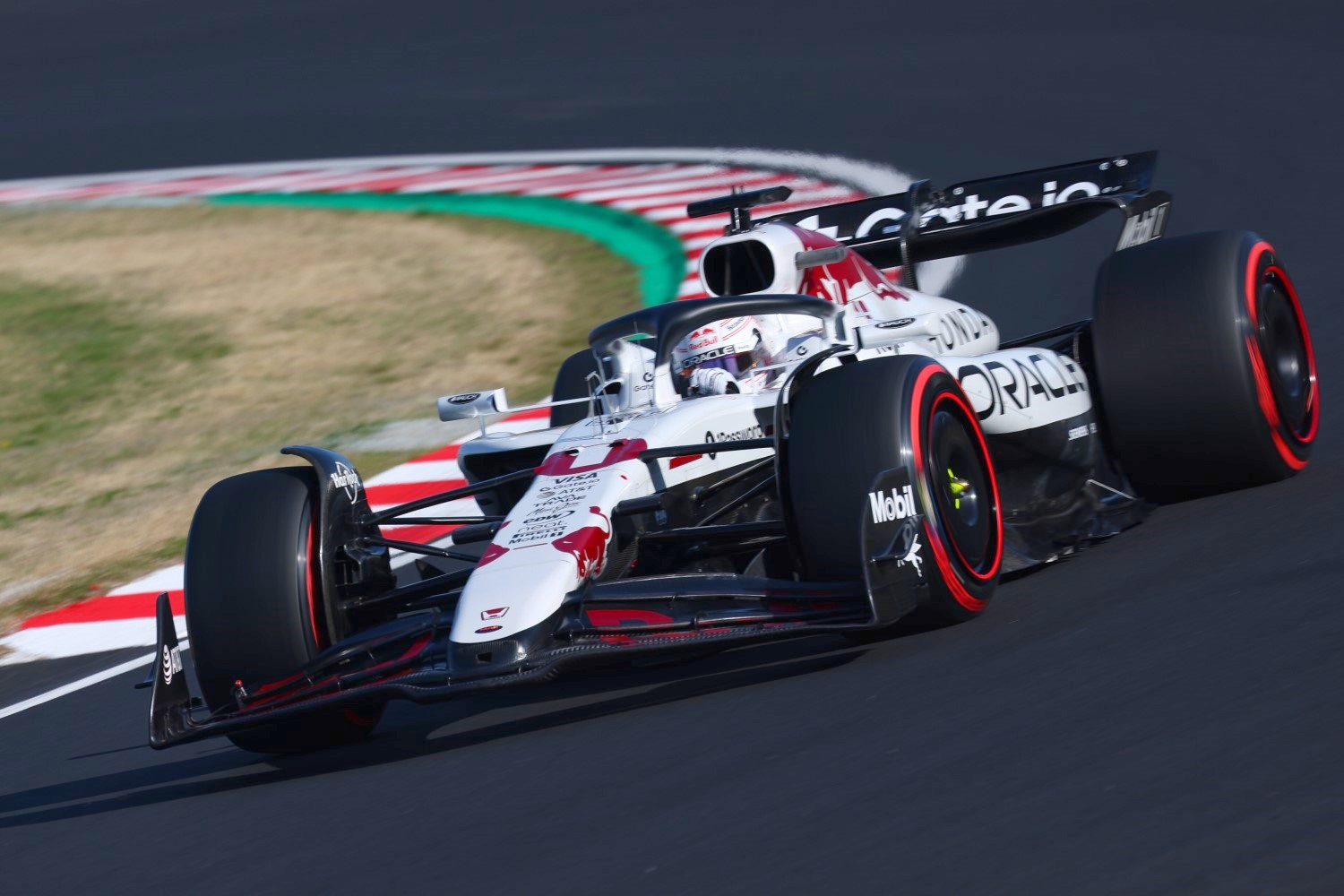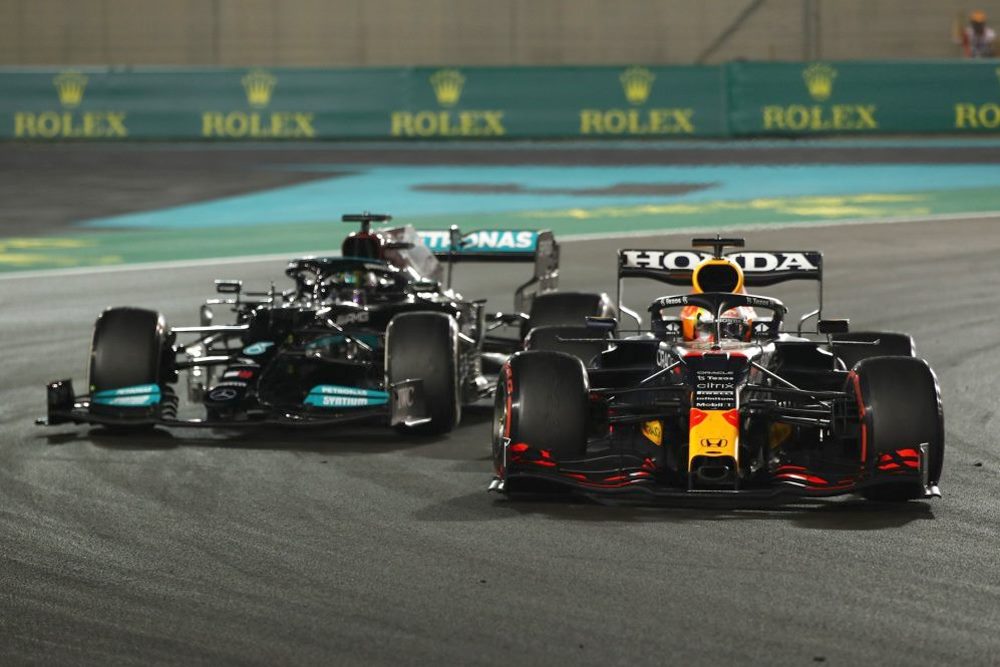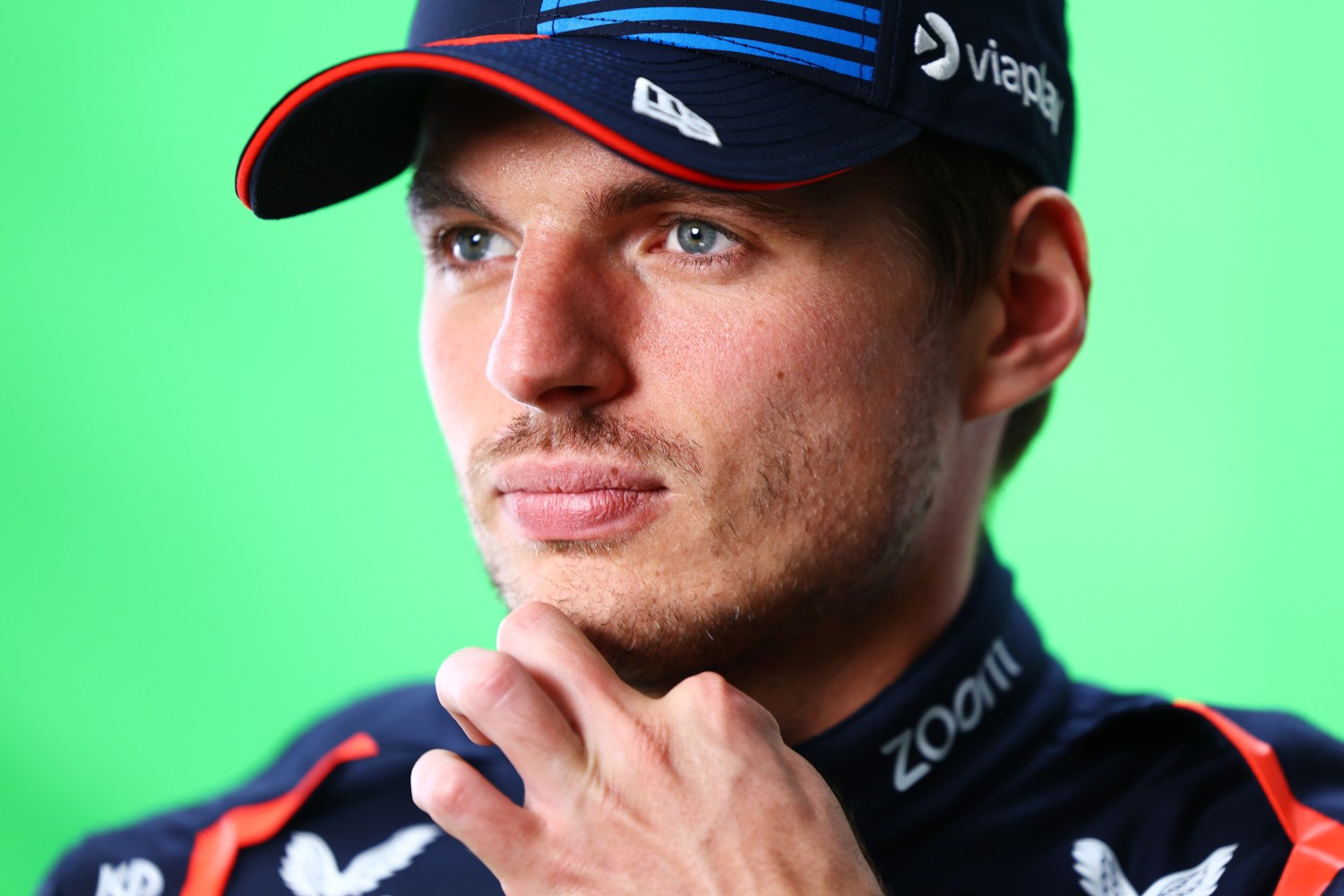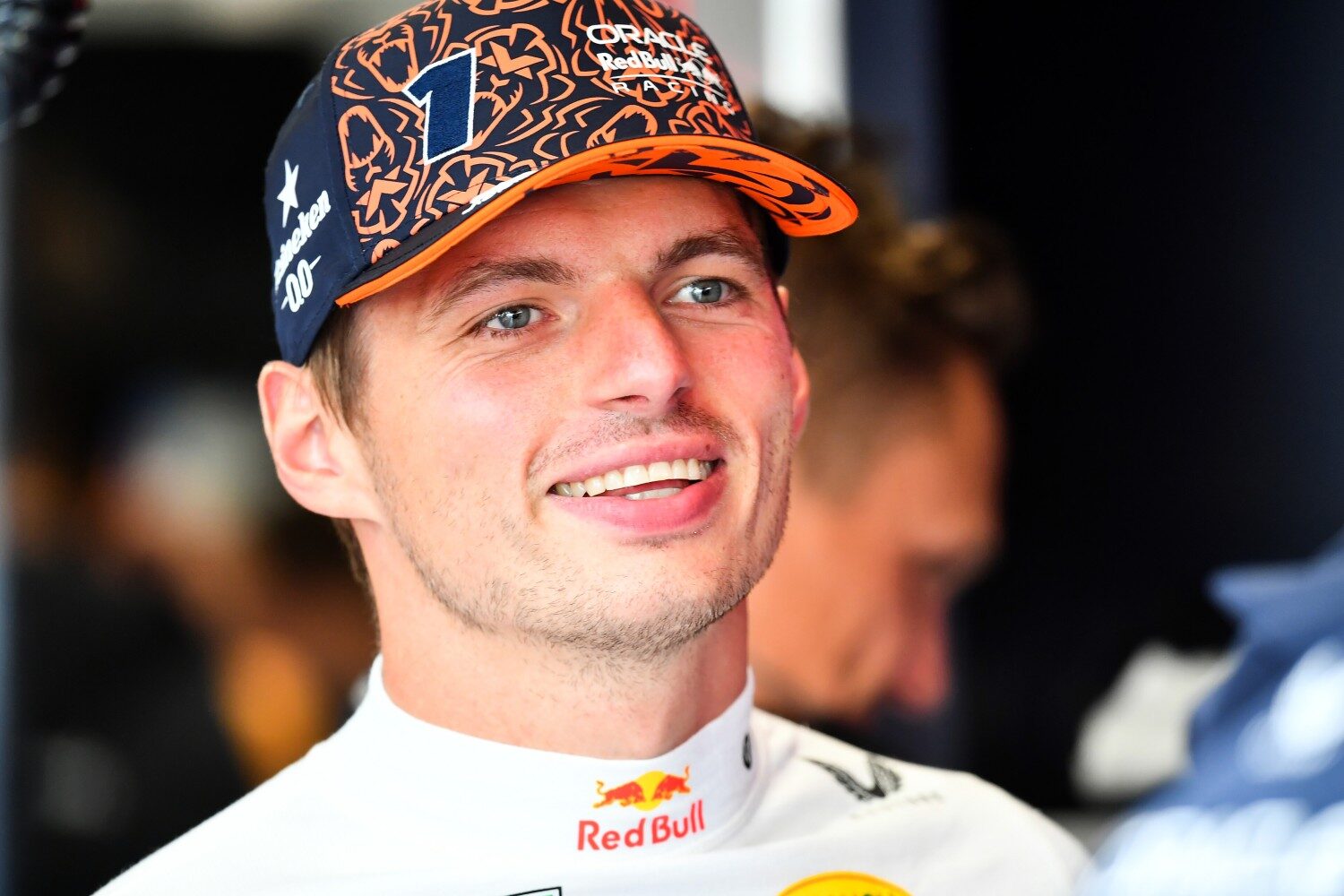Max Verstappen: The Unrivaled Force in Formula 1
In the high-stakes world of Formula 1, where split-second decisions and raw talent collide at speeds exceeding 200 mph, Max Verstappen (pictured) stands as the undisputed benchmark for excellence.
–by Mark Cipolloni–
The 27-year-old Dutch phenom, now a four-time consecutive World Drivers’ Champion (2021–2024), has not only shattered records but redefined what it means to dominate the sport. Even in the 2025 season, where Red Bull’s RB21 has struggled to keep pace with McLaren’s MCL39, Verstappen’s pole at the Japanese Grand Prix—hailed by BBC Sport’s Andrew Benson as “one of the greatest of all time”—and his gritty victories at Suzuka and Imola underscore his peerless ability.

But what elevates Verstappen above legends like Lewis Hamilton? It’s a blend of instinctive speed, unflinching consistency, and an almost superhuman capacity to extract victory from subpar machinery, as echoed by experts across the paddock.
Verstappen’s ascent began as a teenage prodigy, debuting for Toro Rosso in 2015 at just 17 years and 166 days old—the youngest driver in F1 history. By his second season, he claimed his maiden win at the 2016 Spanish Grand Prix, becoming the sport’s youngest victor at 18. Fast-forward to today: As of the 2025 Hungarian Grand Prix, he boasts 65 race wins, 44 poles, 34 fastest laps, and 117 podiums from 208 starts.
These aren’t just numbers; they represent dominance in an era of ground-effect cars that demand precision and adaptability. In 2023, he won a record 19 of 22 races, amassing 575 points—far surpassing Hamilton’s peak of 413 in 2019.
Even without the outright fastest car in 2025, Verstappen sits third in the standings, trailing McLaren’s Oscar Piastri by nearly 100 points but delivering “towering achievements” in a third-place constructor, as Benson noted. His ability to win the 2024 title in a non-dominant Red Bull—echoing Nelson Piquet’s 1983 feat—proves he’s not reliant on superior equipment.
At the core of Verstappen’s supremacy is his raw, natural talent—a “trillionth of a second” feel for the car that allows him to create stability mid-corner, as described by analysts. Former Toro Rosso boss Franz Tost called him “the fastest driver in Formula One,” praising his innate control that shines in everything from karts to GT3 cars.
Racing driver David Terrien, a karting and GT world champion, attributes Verstappen’s edge to his all-encompassing mastery: “He is extremely good in all aspects of the sport,” from qualifying magic to racecraft, where he matured from an aggressive rookie to a calculated champion. This was evident in his 2024 São Paulo masterclass in wet conditions, a drive James Elson of Motor Sport deemed proof that “Max Verstappen is F1’s best driver,” capable of “one-lap magic” and strategic brilliance.
Comparisons to seven-time champion Lewis Hamilton are inevitable, given their epic 2021 clash that culminated in Verstappen’s maiden title on the final lap in Abu Dhabi. Hamilton holds the records for most wins (105), poles (104), and podiums (202), with seven titles tying Michael Schumacher’s haul.

Yet, experts increasingly favor Verstappen’s current form. Bernie Ecclestone, F1’s former supremo, declared Verstappen “still the strongest [driver] on the grid,” even as Red Bull’s dominance wanes, citing his supremacy over “supreme talents” observed across decades.
Gerhard Berger, a two-time F1 podium finisher and Ferrari icon, went further: “Max Verstappen is probably the best we’ve ever seen in Formula 1,” praising his tactical acumen in overtaking and positioning—skills neither Ayrton Senna, Schumacher, nor Hamilton possessed to the same degree. “It’s just noticeable that Max is always in the right place,” Berger added, highlighting Verstappen’s flawless starts and duels.
Guenther Steiner, ex-Haas team principal, echoes this, calling Verstappen the “complete driver” for his hunger and aggression—qualities that edge him ahead of Hamilton, despite the Brit’s seven titles. “Is Lewis as driven and hungry like Max is? I don’t know,” Steiner mused, noting Verstappen’s evolution into a “calculator” who wins with precision.
Jenson Button, the 2009 champion and Hamilton’s former teammate, ranks Verstappen as the “most rounded F1 driver that there has ever been,” surpassing even Hamilton’s “unbelievable” natural ability.
“There is just something about Max that he can do something with the car that I don’t think anyone else can,” Button said, emphasizing his speed in qualifying and recovery drives.
Even Hamilton’s peers tip the scales. Fernando Alonso, a two-time champion, said in 2021: “Max is driving—in my opinion—one step ahead of all of us,” after a Jeddah qualifying lap that screamed pure talent over machinery.
Karun Chandhok likened Verstappen’s ruthless combat to Schumacher’s, while by 2025, Benson affirmed he’s “regarded by almost everyone in [Formula One] as the best driver in the world.” Johnny Herbert, a three-time F1 winner, boldly claimed Verstappen is a “once-in-a-generational talent” who will surpass Hamilton, Schumacher, and Senna, evolving the sport’s benchmark.
Critics point to Verstappen’s early aggression—incidents like his 2025 Spanish clash with George Russell—but even then, RaceFans’ mid-season review ranked him No. 3, lauding his “exceptional drives” and two wins against the odds, while noting his temperament as a rare flaw.
In contrast, Hamilton’s 2025 move to Ferrari has yielded mixed results, with Sky Sports rating him sixth overall, behind Verstappen’s top spot in the F1 25 game for pace and racecraft. Verstappen’s win percentage (31.3% after 208 starts) already outpaces Hamilton’s career mark, and with youth on his side, projections suggest he’ll eclipse those stats.
Verstappen’s edge isn’t just speed; it’s mental fortitude. As The Athletic’s analysis notes, his “outrageous innate ability” makes the impossible look effortless, from 14th-to-first recoveries to tire management masterclasses. In a sport where cars evolve yearly, Verstappen’s adaptability—thriving in wet, dry, or street circuits—sets him apart.
While Hamilton’s longevity and records are legendary, Verstappen embodies the present pinnacle: a driver who, as Total Motorsport puts it, possesses “raw, natural talent and speed” unmatched in F1 history.
As 2025 unfolds, with McLaren leading the charge, Verstappen’s response will only solidify his status. The consensus from Ecclestone, Berger, Steiner, Button, and beyond is clear: Max Verstappen isn’t just the best driver in F1—he’s redefining greatness for the next generation.

